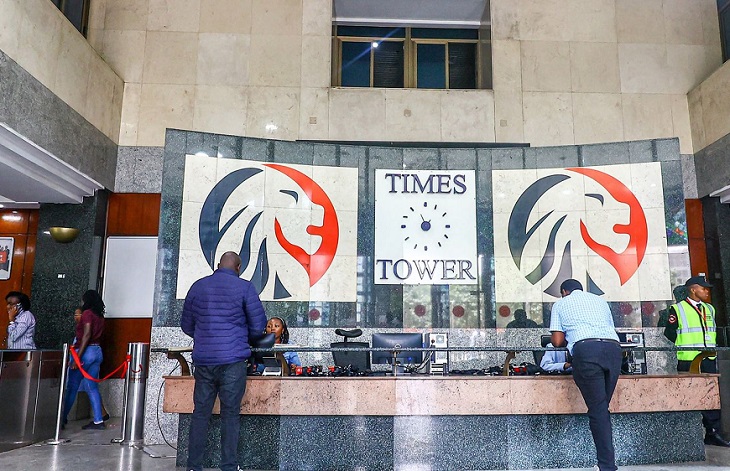Each year, the Kenya Revenue Authority (KRA) is assessed against a singular yardstick: did it meet its collection target? This focus on revenue performance, while important, often oversimplifies the web of underlying factors that shape outcomes. With the KRA having closed the 2024/2025 fiscal year with a revenue collection of Ksh. 2.571 trillion against a target of Ksh 2.555 trillion — it’s worth asking: what drives or hinders Kenya’s revenue performance beyond the headline numbers?
First, it is important to underscore that KRA’s core mandate is to assess, collect, and account for all revenues. The Authority administers revenue-related provisions of the laws listed in the First and Second Schedules of the KRA Act (Cap 469), and also collects levies on behalf of various government agencies under different Acts of Parliament. As such, KRA’s overall revenue target includes both Exchequer revenue (revenue collected for the National Treasury) and Agency revenue (revenue collected on behalf of other public institutions).
That said, revenue collection is closely tied to the strength of the economy. Periods of low economic growth, currency volatility, and weak business sentiment shrink taxable activity. In FY 2024/25, the effects of the political unrest around the Finance Bill 2024 and its subsequent shelving, high bank lending rates, slowed private sector credit growth, global tariff wars, and geopolitical conflicts inevitably impacted corporate earnings and household consumption — both critical tax bases.
Moreover, policy uncertainty arising from delayed implementation of tax measures to legal disputes can stall compliance and delay remittances. For instance, reversals or legal challenges around new tax provisions erode predictability for both taxpayers and revenue administrators.
Revenue performance is also shaped by KRA’s own administrative and operational efforts. Gains accruing from compliance monitoring, tax audits, and data-driven enforcement are hugely dependent on the systems and the people behind them. This is why KRA has made great efforts to leverage technology and ensure that its staff are well-equipped to undertake data-driven decision-making.
Initiatives such as the Electronic Tax Invoice Management System (eTIMS) are geared towards minimising tax fraud, improving compliance, and simplifying the filing and payment of Value Added Tax (VAT), which in turn facilitates tax base expansion and increased tax revenue. The ongoing rollout of eTIMS for fuel stations is part of the effort to streamline operations and address compliance challenges previously experienced within the petroleum industry.
KRA has made commendable progress in expanding the tax net — particularly through electronic invoicing systems and taxation of the digital economy. However, taxing the gig economy as well as cross-border digital platforms through the Significant Economic Presence Tax remains a key area of focus in efforts to expand the country’s tax base.
It is notable that taxation of the digital economy during the 2024/2025 financial year netted Kshs. 14.3 billion, which translates to a 32% growth from the Kshs. 10.8 billion collected in 2023/24. These taxes were collected from non-resident taxpayers in the digital economy, including multinational digital companies.
Equally, Kenya’s large informal sector — which accounts for over 80% of employment — remains largely outside the formal tax net. This is now being addressed through a Tax Base Expansion (TBE) programme that aims to onboard taxpayers previously not paying taxes and convert inactive taxpayers into active taxpayers. The programme has enabled KRA to collect Kshs. 24.9 billion in revenue. Some of the initiatives under TBE include the launch of the Electronic Rental Income Tax System (eRITS), which has provided visibility of rental properties, rental income, and occupancy status, as well as the recruitment of landlords under the Monthly Rental Income (MRI) programme through a taxpayer mapping process (Block Management System (BMS).
Critically, the impact of reforms must be seen as cumulative. Structural changes like taxpayer segmentation, customer-centric approaches, and real-time monitoring may not yield immediate fiscal results — but they lay the groundwork for sustainable collection.
Perhaps most underestimated is the role of voluntary compliance, which hinges on citizens’ trust in the tax system and government accountability. When taxpayers perceive that taxes fund public goods and that tax systems are fair and transparent, compliance improves. Frequent shifts in tax policy and perceptions of corruption or misallocation of public resources undermine this trust. Enhancing taxpayer education, feedback mechanisms, and service quality is just as important as chasing new sources of revenue.
Finally, revenue targets themselves must be carefully calibrated. While the National Treasury sets ambitious targets to fund development and social programs, persistent overestimation can distort fiscal planning and put undue pressure on KRA and ultimately, the taxpayer. Revenue targets should reflect not just ambition, but also a clear-eyed view of economic conditions, historical performance, and collection capacity.
Beyond targets, success will depend on how effectively KRA navigates complexity — economic, administrative, and political. A resilient revenue system is adaptive, equitable, and trusted.
As Kenya implements its Medium-Term Revenue Strategy and pushes for fiscal consolidation, understanding the broader ecosystem influencing collection is vital. It’s time we moved the conversation beyond mere targets and towards the fundamentals that make sustainable revenue growth possible.
Related Content: KRA To Set Up A Permanent Office In Eastleigh To Serve The Business Community
By CPA Eric Oduor Otieno, Accountant.













